
Asia Pacific
15:02, 24-May-2019
What challenges await Modi?
Updated
17:44, 24-May-2019
By Wang Mengjie
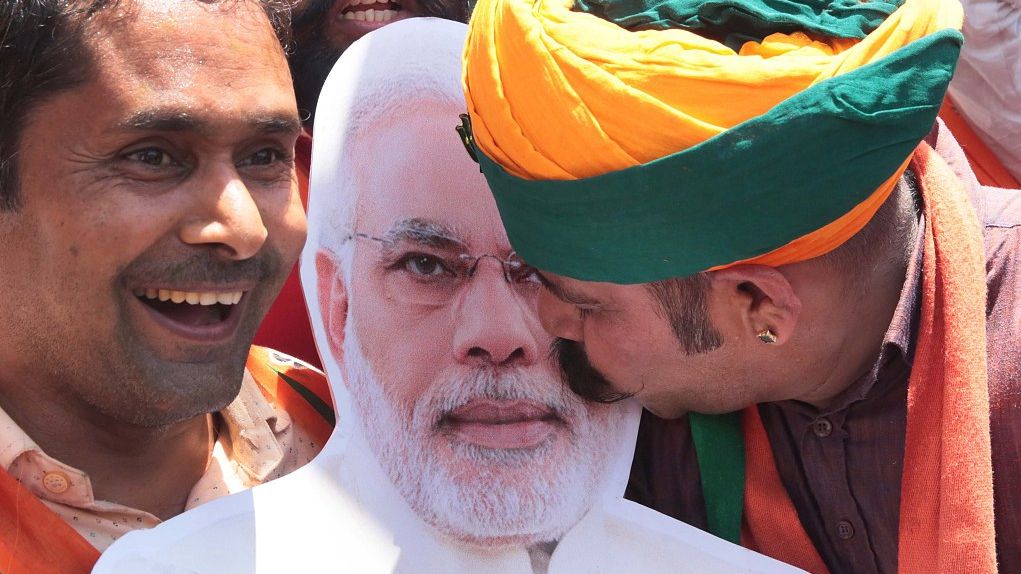
In the Indian marathon election, with nearly 900 million people eligible to vote, India's Prime Minister Narendra Modi claimed an emphatic victory which gave his Bharatiya Janata Party (BJP) the first back-to-back majority for a single party since 1984.
Since everything is a double-edged sword, Modi's landslide win is to be greeted with doubts among locals who raised eyebrows at his past political performance.
04:34
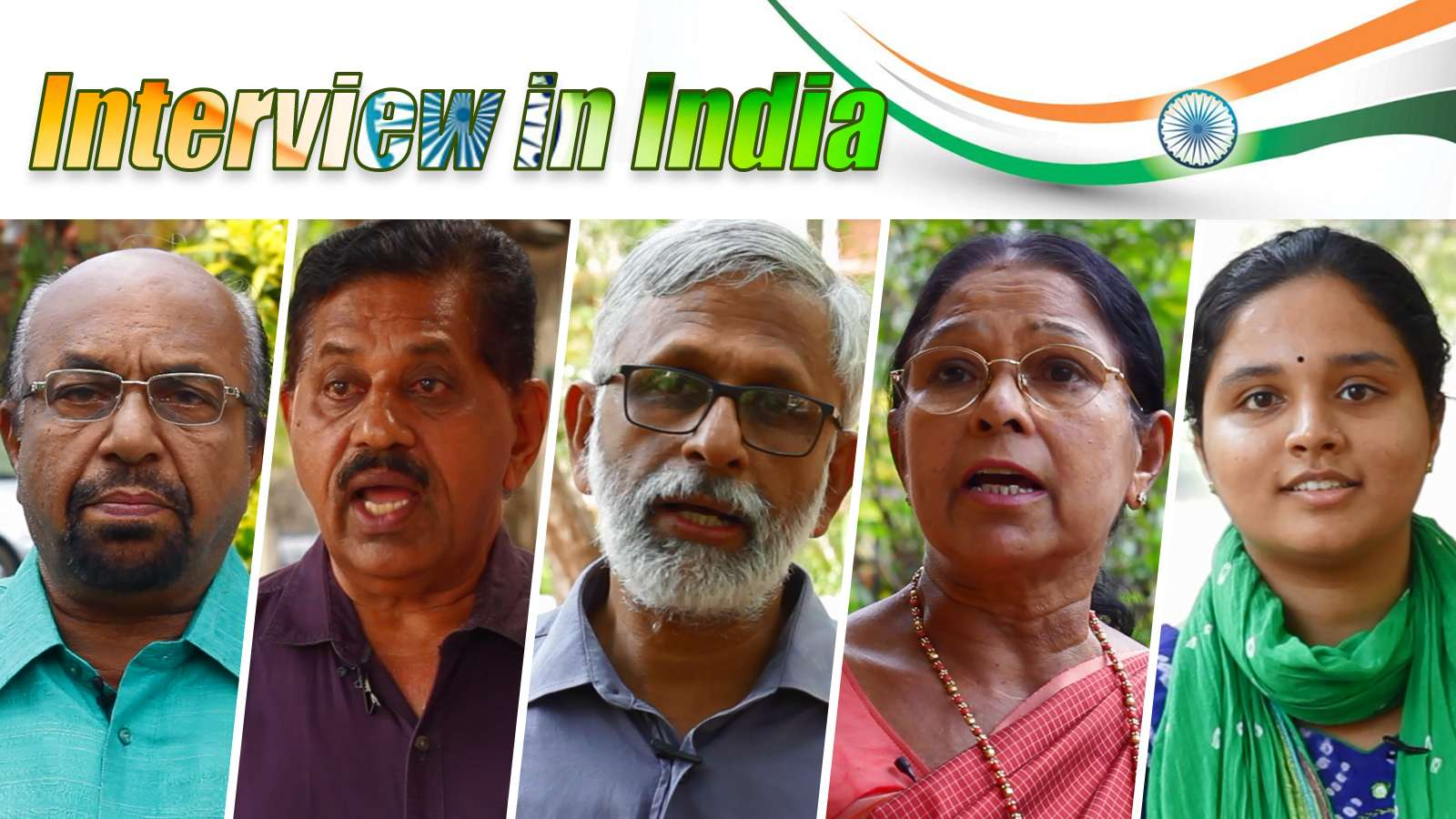
Unhappy farmers
Agriculture, with its allied sectors, is the largest source of livelihood in India, with 70 percent of rural households depending primarily on it.
Farmers are finding it ever harder to water their crops as groundwater levels fall, and monsoon rains become more unpredictable.
This has prompted extreme measures including curfews and armed guards near water sources while pollutants have contaminated groundwater supplies in many areas.
Farmers are also reeling from low prices for their produce and a lack of infrastructure, meaning 40 percent of fruit and vegetables rot before reaching consumers, according to the UN.
Read more:
"Farmers are actually the most disregarded section in the Indian society," Shaji Varkey, professor of political science at Kerala University told CGTN.
"A large numbers of farmers are leaving farming operations (due to) the increasing debt, the remunerating farming practices and most of all the environmental crisis that affects (them) in a big way, particularly issues related to global warming and other issues."
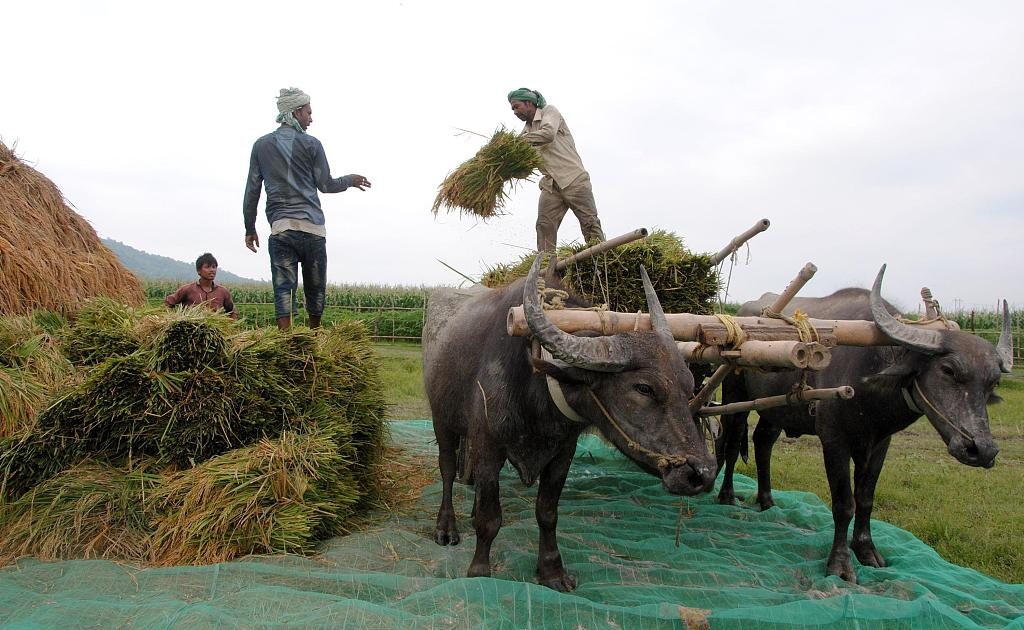
Indian farmers unload their harvest from a buffalo cart on a paddy field at Mayong village in Morigaon, June 3, 2017. /VCG Photo
Indian farmers unload their harvest from a buffalo cart on a paddy field at Mayong village in Morigaon, June 3, 2017. /VCG Photo
The professor didn't entertain much hope on what the people can expect from the new government in that regard.
"All the benefits, whatever the government does for the farming community, go to the so-called upper and middle section of the farmers; those who are at the bottom, the lower classes, their interests (are) not at all addressed by the government."
Corruption
Many Indians praise Modi's efforts to stamp out corruption and bring development to poor regions, but in the eye of James Crabtree, an associate professor at the National University of Singapore, a dramatic long-term reduction in corruption is unlikely to follow.
"Modi's administration too often now appears willing to use anti-corruption investigations as a tool of political intimidation. Even supposed successes, such as new bankruptcy rules designed to recover funds from collapsed businesses, show signs of running into the sand," Crabtree told Nikkei Asian Review in a May 15 report.
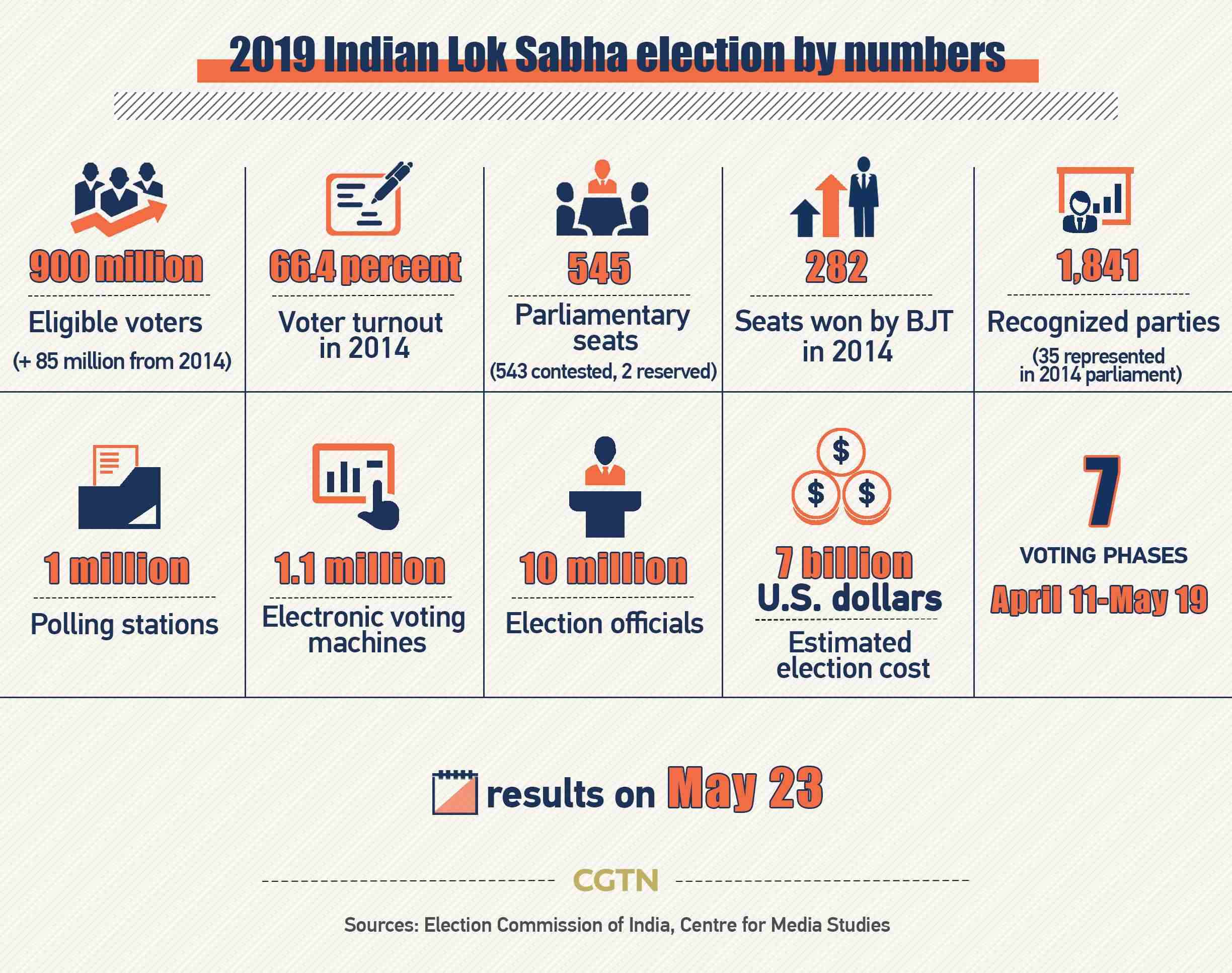
One of the major goals of the Modi government in the last five years was to curb corruption, which locals can see doesn't happen.
Arya Anil, a postgraduate student at Kerala University, expects a more transparent system during Modi's second term.
"The new government should bring up policies of some framework so the people can know what is happening in the government regarding the policies," she told CGTN.
Unemployment
Modi in his first term fell short on creating jobs for the more than a million Indians entering the labor market every month, experts say.
A leaked recent government report showed that unemployment rose to a 45-year high of 6.1 percent in the year ending June 2018, in which more than half of India's 1.3 billion population is aged under 25 with nearly one in every five aged between 15 and 29 are jobless.
01:56
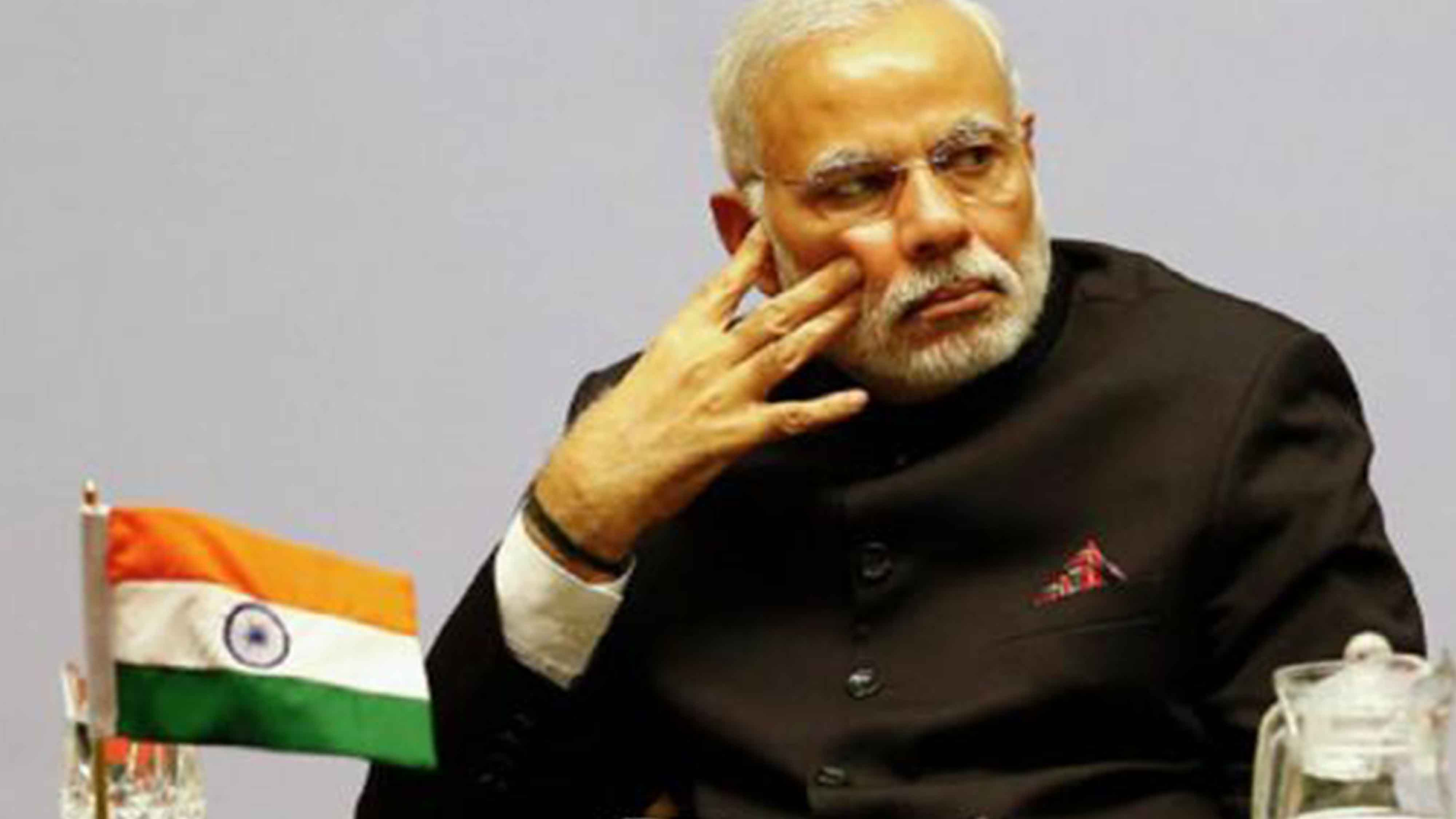
Government jobs have seen staggering numbers of applicants, including many overqualified candidates drawn to the prospect of a secure position with perks. Last year 19 million applied for 63,000 positions at Indian Railways.
Non-farming sectors are hampered by stringent labor laws and insufficient investment in skills, according to the Organisation for Economic Co-operation and Development (OECD).
For Varkey, for whoever comes into power, the priority should be the unemployment threat, and mere rhetoric no longer works.
"Addressing the unemployment question is a large canvas, it should not be (done) solely by the increasing industrial production, or increasing one particular sector like tourism. But it should be an effort on all fronts, on the agrarian front and the industrial fronts."
(Cover: A Bharatiya Janata Party (BJP) supporter kisses a cut-out of Prime Minister Narendra Modi as they celebrate the party's lead on the counting day of 2019 Lok Sabha elections in Jaipur, India, May 23, 2019.)
(Video editors: Zhao Yuxiang, Zhou Tingyu)
(With input from agencies)

SITEMAP
Copyright © 2018 CGTN. Beijing ICP prepared NO.16065310-3
Copyright © 2018 CGTN. Beijing ICP prepared NO.16065310-3